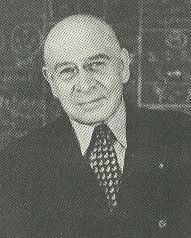It is now no mystery that some quite influential 'philosophers' were 'mentally' ill.

"Alfred Habdank Skarbek Korzybski" was a Polish-American independent scholar who developed a field called general semantics, which he viewed as both distinct from, and more encompassing than, just the field of semantics. He argued that human knowledge of the world is limited both by the human nervous system and the languages humans have developed, and thus no one can have direct access to reality, given that the most we can know is that which is filtered through the brain's responses to reality. His best known dictum is "Map–territory relation/The map is not the territory".
If you enjoy these quotes, be sure to check out other famous scientists! More Alfred Korzybski on Wikipedia.God may forgive your sins, but your nervous system won't.
There are two ways to slice easily thorugh life; to believe everythingor to doubt everything. Both ways save us from thinking.
The map is not the territory.
…the analogy between the noises we make when these noises do not symbolize anything which exists, and the worthless checks we write when our bank balance is zero….
Any proposition containing the word 'is' creates a linguistical structural confusion which will eventually give birth to serious fallacies.
If the map shows a different structure from the territory represented - for instance, shows the cities in a wrong order. . . . then the map is worse than useless, as it misinforms and leads astray.
It is amusing to discover, in the twentieth century, that the quarrels between two lovers, two mathematicians, two nations, two economic systems, usually assumed insoluble in a finite period should exhibit one mechanism, the semantic mechanism of identification - the discovery of which makes universal agreement possible, in mathematics and in life.
Two important characteristics of maps should be noticed. A map is not the territory it represents, but, if correct, it has a similar structure to the territory, which accounts for its usefulness.
If words are not things, or maps are not the actual territory, then, obviously, the only possible link between the objective world and the linguistic world is found in structure, and structure alone.
Copyright © 2024 Electric Goat Media. All Rights Reserved.